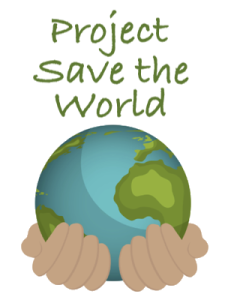Events
Date(s) - 25/06/2021
10:00 am - 11:00 am
Categories No Categories
Link: Knowledge Diplomacy and Climate Change
<strong Description:
How can knowledge diplomacy address the climate crisis?
About this event
The aim of the event is to explore the role of KD in relation to climate change, with contributions from leading experts and an invitation to policymakers and students to participate and share their views. The value of this event will come from sharing knowledge and ideas. By doing so, we will inform the University of London’s approach to its future work and thinking on KD, and its potential to develop into an important focal point for the University’s international agenda.
Chair
Dr Simon Rofe, SOAS
Speakers
Dr Mathieu Denis, Science Director, International Science Council
Felicia Jackson, SOAS
Frances Wood, Regional Director UKSIN, FCDO
Background
We have come to a “moment of truth”, United Nations Secretary General Antonio Guterres said in his State of the Planet speech in December 2020. “Covid and climate have brought us to a threshold.”
The need to share knowledge globally, at speed and with trust, and to develop common-interest-building strategies through Science/Knowledge Diplomacy has never been greater as we work through the global pandemic and at the same time face up to the climate crisis.
The concept of Knowledge Diplomacy gives us a lens through which to consider the future of international knowledge production and collaboration. The intersection of international higher education, international relations, Science/Knowledge Diplomacy and nation branding is complex.
The story of the pandemic and of climate change is that even in such extreme circumstances, public health and the many variables of climate change, despite their existential nature, are not the only variables at stake. Also at stake are countries’ nation brands and influence, which hinge on how well countries are seen to have responded to the crises. Higher Education with its knowledge production and analytical capability and transnational networks is key.
The policy choices we make now will be crucial to the prospects for the global future. The 2021 United Nations Climate Change Conference, also known as COP26, is scheduled to be held in the city of Glasgow from 1 to 12 November 2021 under the presidency of the United Kingdom and Italy. COP26 will bring parties together to accelerate action towards the goals of the Paris Agreement and the UN Framework Convention on Climate Change. As the UK Government website for COP26 says:
“The UK is committed to working with all countries and joining forces with civil society, companies and people on the frontline of climate change to inspire climate action ahead of COP26.”
That commitment is based on the need for multi-level, multistakeholder, cooperation, involving multilateral bodies, transnational corporations, the financial investment sector, national governments, and a huge range of non-state and informal actors.
Despite the crucial dependency on developing a shared global understanding of the science of climate change, and the role of science diplomacy in ensuring access to knowledge, promoting it, and influencing public opinion, there is very little research on how science diplomacy can be utilised to tackle global challenges such as climate change. There are also questions over the effectiveness of science diplomacy. In the international climate regime, the issues of science intermingle with those of diplomacy and interact with them. For example, examination of the IPCC highlights that the extent to which diplomats understand and use scientific knowledge, as well as represent contested national interests during major negotiations, can jeopardise science diplomacy’s effectiveness. The consensus that exists among scientists about the origins and long‐term risks of climate change does not necessarily translate into a consensus among diplomats over an appropriate course of action, raising questions over the contribution of science/knowledge diplomacy.
The challenges that COVID-19 and climate change have exposed in the information economy and ecology will be of increasing importance. Academics and policymakers need to understand and grasp them now if we are to address the existential threats of climate change
Powered by Events Manager
